Today, you’re going to learn how to heal abandonment issues using 15 powerful ways that will help you overcome fear of abandonment in relationships and boost your self-esteem.
What Is Abandonment Wound?
Abandonment wound is an intense anxiety and fear that we experience when we lose or perceive the loss of a loved one.
But abandonment can also be subtle, such as when our accomplishments are not recognized, or when we are not invited to a party, or when we feel dismissed by someone we care about.
Abandonment wound can cause our self-esteem to plummet, generating feelings of insecurity and self-doubt.
Abandonment wound can complicate our grief when we lose a loved one, or something important to us, making it hard to let go.
Why Does Abandonment Hurt So Much?
As a child, you couldn’t have survived without your primary caretakers.
Therefore, your brain was conditioned to form attachments to your parents and respond to abandonment.
As an adult, going through a breakup, for example, can trigger the same response of a child whose very existence is threatened, sending your autonomic nervous system into full sway.
You go into survival mode, which involves: fight, flight, and freeze.
Daily incidents feeling criticized, excluded, misunderstood, belittled, or disrespected, can trigger abandonment wound, especially when it’s fresh.
Related: Relationship Anxiety: How to Stop Relationship OCD From Ruining Your Relationship?
What Are Abandonment Issues
Abandonment issues are a form of anxiety that stem from a fear of loneliness.
Abandonment issues usually occur during the course of a stressful or traumatic experience in childhood, but they can occur in adulthood, too.
Abandonment Issues Test
- Do you tend to give/help too much?
- Are you often overly eager to please others?
- Do you tend to feel insecure in your relationships?
- Do you need to control or be controlled by your partner?
- Do you sometimes push people away to avoid rejection?
- Do you often need continual reassurance that others love you and won’t leave?
- Do you tend to move quickly from one relationship to another?
- Do your relationships lack emotional intimacy?
- Do you tend to tolerate poor treatment and settle in unhealthy relationships?
If you answered yes to most of these questions, you may have abandonment issues.
How To Heal Abandonment Issues?
#1. Use Mindfulness to Survive The Pain
Getting into the moment and staying there as long as possible is the best way to face the fear of abandonment.
This could mean a formal mindfulness meditation practice, or simply going places and doing things that stimulate your senses of hearing, sight, and touch, and breathing in a deliberate, conscious way.
Getting into the moment can be your refuge from pain, bringing you out of your painful thoughts and into the sensations that are present in your immediate environment.
Aren’t you supposed to embrace your pain? You may ask.
When facing a pain as intense as fear of abandonment, getting through the pain is a matter of survival.
During the initial crisis, your primary task is emotional survival, which given the circumstances of abandonment, you are usually left alone to do this.
Practicing mindfulness helps you realize that, as a separate human being, you are indeed capable of withstanding the pain of being alone.
#2. Recognize The Stages of Abandonment
Abandonment has its own kind of grief.
Like grief, abandonment has stages: denial, withdrawal, anger, depression, and acceptance.
Denial
The sudden disconnection sends you into shock and devastation.
Withdrawal
Just like drug withdrawal, love withdrawal can cause painful aching, and longing.
Anger
Being rejected can cause rage that you may turn against yourself, blaming yourself and feeling unworthy, or you may also regress into fantasies of revenge and retaliation.
You may also experience feelings of frustration and restlessness as you feel unable to get your life back in order.
Related: How To Manage Your Anger In Healthy, Effective Ways?
Depression
You may idealize your lost love and interpret the rejection as evidence of your unworthiness, scarring your self-image and causing depression.
Without recovery, these feelings may interfere in future interactions and relationships.
Related: How to Deal With Grief and Get Back to Life After Loss?
Acceptance
You experience intervals of inner peace and confidence as you get distracted by other things in life.
These stages are not linear and may overlap. You may find yourself swirling through the stages even within a day.
As you learn how to deal with the feelings at each stage, you heal and get out of this overwhelming process faster.
Related: ACT For Grief: 6 Tools to Help You Move Forward with Grief – Acceptance and Commitment Therapy (ACT)
Try This
Describe the abandonment experience you are going through. Explain what is so painful about it.
What stage of abandonment are you struggling with the most? How does it feel?
What you are hoping to gain from this experience?
#3. Work Through The Feelings
1. Identify the feeling
Putting your feeling into words helps get it outside of yourself into a safe structure.
(I feel _____________________ because ____________________________________ .)
2. Accept your feelings as part of being human
Most of the time, our suffering is caused by our secondary emotions – emotions we feel about our primary emotions.
For example, you may feel frustrated that you’re having feelings of sadness, thinking to yourself, “Why do I always have to feel this way.” Your feelings of anger are a secondary emotion about an emotion you already experience, that is sadness.
Rather, try to accept your feelings as part of being human. Accept what is and direct your energy and attention toward getting feedback from these feelings and figuring out ways to make yourself feel better.
3. Face your feelings in the moment
Avoiding or ignoring your feelings will only intensify them. Instead, try being mindful and present with these feelings.
The more you feel them, the less frightening they become and the more they subside.
Related: Regulate Your Emotions: How To Manage and Control Your Difficult Emotions?
#4. Address Feelings of Self-Blame and Shame
Blaming yourself for your loss can create feelings of shame and make the crisis worse.
Shame can be a destructive emotion, causing you to feel unworthy, defective even.
Unless you challenge these assumptions, it can further complicate your recovery and sabotage future relationships.
The antidote to shame is self-acceptance.
Related: How To Let Go Of Shame After Trauma?

#5. Accept the Pain of Loss
Accepting the pain of loss is a critical step in healing. It also helps reduce shame.
Rather than wasting so much time and energy defending yourself against rejection, blaming yourself, or trying to fight the grief, you choose to accept what is and redirect your energy toward healing.
You recognize that the loss of your relationship is only the loss of an attachment to one person and that your life is not over.
By providing more accurate facts to your mind, you help yourself calm down and reassure yourself.
Take a moment to do a reality check:
- I am capable of taking care of myself.
- I can survive this crisis as an adult.
- This emotional excess is just my mammalian brain’s way of trying to overprotect me.
- This is not a like-or-death battle and I am in no real danger.
- I can turn my life in a positive direction.
Calmly and patiently talk to yourself until your logical mind has effectively taken back control from your mammalian brain.
Related: Overcome Suffering In Your Own Way: 4 Keys To Relieve Suffering
Try This
Imagine yourself pushing your abandoner out of your sacred space – a space you create around you where you feel safe and secure.
Imagine your new sacred space is free of pain, past wounds, and the need for approval.
See yourself moving forward leaving behind the self-defeating patterns that have prevented you from experiencing secure love.
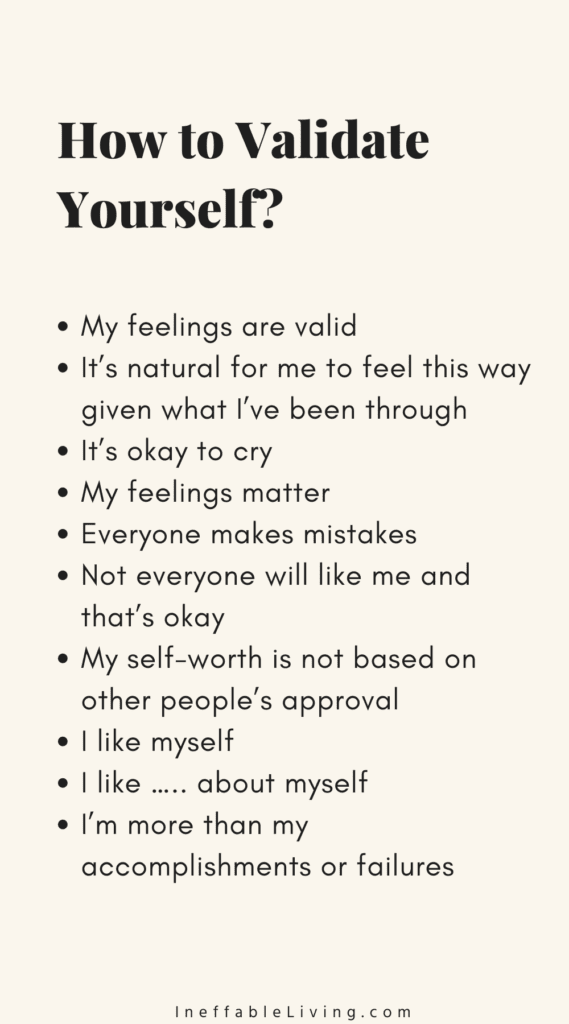
#6. Take Your Power Back From Your Abandoner
When you feel overwhelmed with your sense of loss, your mind tries to make sense of what’s happening and creates theories to explain why you feel so bereft.
Often you conclude that your former partner must have been so special for you to feel this incessant longing and yearning.
These are illusions created by our minds that give all of your power to your abandoner.
This idealization of the departed is common to all forms of grief, including abandonment.
Your task here is to use your logical mind to question the assumptions you’ve made about your former partner.
Try This
Use writing to speak to your mind and question your assumptions about your former partner.
Uncover all the shortcomings and flaws you were trying to ignore and deny. Enumerate all the logical reasons why they are not the ideal person you thought they were.
For example, you may reason that if they could abandon you without justification or warning, then they were not worthy of you. Or if they cheated on you, then they are unworthy of your trust and respect.
As you work on taking them down from their pedestal, try working on elevating yourself, too.
For example, acknowledge the things they have done wrong to you that you could never do to someone else.
#7. Face Your Fears
Even when your logical mind takes back control, it can be scary to face the fact that the future remains uncertain.
Related: Dealing With Avoidance: How to Calculate Risks And Overcome Fear In Life?
Common fears may include the following:
- The pain will get worse and I won’t be able to withstand it.
- What if I die of heartbreak?
- I will never love again.
To face these fears, you’ll need use your calming wisdom.
Start by naming a few of your own fears. Then, answer the following questions:
- Is believing in the “always and nevers” of your situation blocking you from moving for-ward? If so, how?
- Are these fears realistic?
- How can you keep these fears from becoming a self-fulfilling prophecy?
Try writing down a compassionate, empathetic note to yourself. Imagine what you’d tell a dear friend who is in the same situation and say it to yourself.
It may also help to share your fears with a supportive friend – someone who will listen without trying to “fix” it.
Related: Anxiety Relief: How to Treat Anxious Symptoms and Thoughts Effectively?

#8. Recognize Your Behavioral Reaction to Fear of Abandonment
Jeffrey E. Young, Ph.D. (2004), founder of schema therapy, identified ten common coping behaviors. These coping behaviors could be divided into categories that line up with our fight, flight, or freeze responses.
Fight Reaction
1. Aggression or hostility: blaming, criticizing, challenging, or being resistant.
2. Dominance or excessive self-assertion: trying to control others in order to accomplish your goals.
3. Recognition seeking or status-seeking: trying to impress others and get attention through high achievement and status.
4. Manipulation and exploitation: trying to meet your own needs without letting others know what you’re doing through the use of seduction or not being completely truthful to others.
5. Passive-aggressiveness or rebellion: appearing to be compliant but essentially rebelling by procrastinating, complaining, being tardy, pouting, or performing poorly.
Freeze Reaction
6. Compliance or dependence: relying on others, giving in, being dependent, behaving passively, avoiding conflict, and trying to please others.
Flight Reaction
7. Social withdrawal or excessive autonomy: isolating yourself socially, disconnecting, and withdrawing from others. You may appear excessively independent and self-reliant, or you may engage in solitary activities, such as reading, watching TV, using the computer, or working alone.
8. Compulsive stimulation seeking: searching for excitement or distraction through compulsive shopping, sex, gambling, risk-taking, or physical activity.
9. Addictive self-soothing: seeking excitement with drugs, alcohol, food, or excessive self-stimulation.
10. Psychological withdrawal: escaping through dissociation, denial, fantasy, or other internal forms of withdrawal.
Which of these behaviors are your reactions to core belief–triggering events?
#9. Know The Difference Between Alone and Lonely
Being alone is a decision and a lifestyle to celebrate.
While being alone feels good when you get to choose it, it can feel frightening and overwhelming when you feel abandoned – It may feel like a punishment for being unworthy or unlovable.
In this sense, being alone is not the problem. Being alone doesn’t mean being lonely. It is only when feelings of abandonment are involved that being alone can cause the following situations:
- Feelings of loneliness
- A drain of life energy
- Depression
- Separation anxiety
- Feelings of shame
Related: How to Happily Spend Time Alone With Yourself and Actually Enjoy It?
#10. Strengthen Your Ability To Be A Separate Person
The ability to be alone is a skill you develop from childhood.
A popular theory suggests that when you feel safe and secure with your primary caregivers, you internalized those feelings and are able to be industrious and productive alone without anyone’s presence or prodding.
It’s never too late. Your task as you heal is to use the crisis of aloneness to develop your ability to be alone and be your own separate person.
Spending quality time alone can help you:
- Discover more about yourself.
- Take a personal inventory of your strengths and weaknesses, likes and dislikes, goals and aspirations.
- Reorder your priorities.
- Connect to your emotional self and restore your emotional reserves.
- Develop new interests.
- Build skills like self-reliance.
- Increase your self-awareness and personal reflection.
- Face your fear of abandonment.
- Gain depth and character.
- Learn to love yourself.
Related: Self-Love Journey: How to Start Loving Yourself?
#11. Empower Yourself
It’s important to recognize that while feelings of yearning and longing after abandonment are a natural response, they are not a need for your former partner to return.
They are, however, a call for you to take care of yourself.
Feelings of yearning and longing are your mind’s need for attachment. It doesn’t dissipate unless you invest your energy in someone else—ideally you.
Use the following reminders to empower yourself:
- Before I can truly know what love is, I need to feel that love toward myself.
- Going though heartbreak crisis is an opportunity for me to learn how to love myself
- The emotional emptiness I feel is my yearning for love from myself.
- The task of self-love is a priority in my life.
Self-Love versus Self-Indulgence
Many people confuse self-love with self-indulgence.
Self-indulgence means buying an extravagance you can’t afford and having one cookie too many.
Self-love, on the other hand, means nurturing your needs and doing something for yourself that’s good for your growth.
Related: Learning To Love Yourself: 30 Day Self-Love Challenge
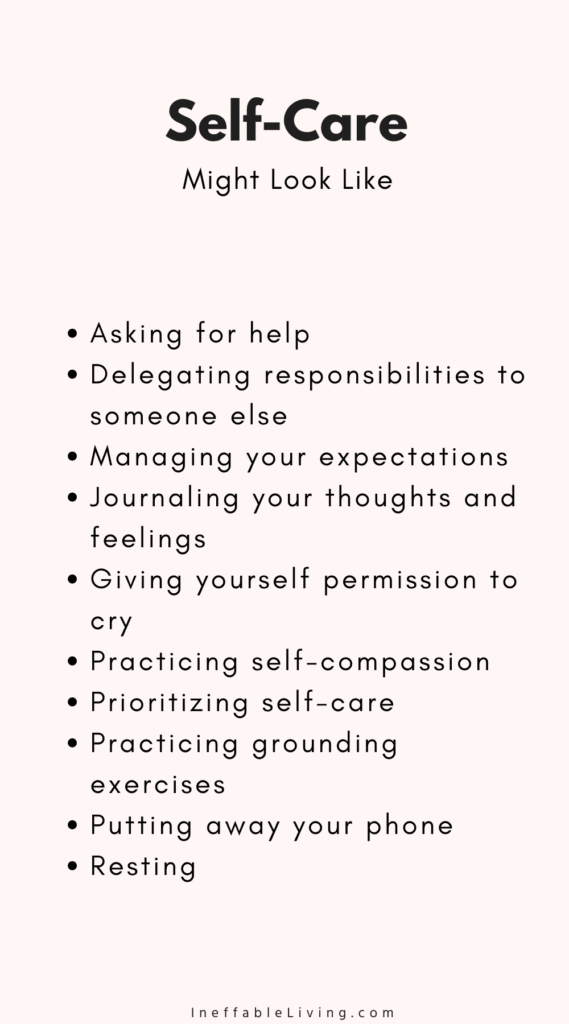
#12. Address Your Addiction to Heartbreak
Do you pursue unavailable partners or partners who bring out craving, pursuing feelings?
If abandonment is a pattern in your life, you need to address your addiction to emotional drama or heartbreak.
What makes you addicted to heartbreaks?
People who have been hurt in the past may equate insecurity and pain with love. If they don’t feel those lovesick sensations, they won’t believe they’re in love.
People who are available may not arouse in them the level of insecurity they’ve come to associate with love. When someone is genuinely interested in them, they might even feel turned off.
Related: 9 Signs You Might Be Emotionally Addicted — and How to Overcome Love Addiction?
Insecure Attachment
People with heartbreak addiction usually have formed an insecure attachment to one or both of their parents, growing up.
They struggled to get their needs met and attention from their parents – or early adolescent relationships, which caused them to doubt their self-worth and put their parents on pedestals, idealizing them at their own expense. It became a pattern.
Gaining Self-Esteem by Proxy
Some people believe that they can gain self-esteem by associating themselves with partners who have valued attributes that compensate for things you feel are lacking in yourself.
The downside is your self-worth remains in someone else’s hands, which perpetuates your cycles of neediness and low self-esteem.
Related: Raising low self-esteem: 18 Ways to Build High Self-Esteem
Try This: Examine Your Patterns
Take time to examine your idea of a good catch and how your values relate to your choices in partners.
You may have to change your values around who you consider to be a suitable catch, such as financial success, personality, looks, confident air, educational achievement, and social background.
For example, if you find yourself attracted to those with big egos, or with some addictions, consciously choose to abstain from this type of partners, rather than pursuing the illusion of love.
Related: The Ultimate Guide to Finding The Right Guy For You
#13. Learn How to Tolerate Being Loved
To recognize the dynamics of a healthy, secure relationship, you may need to learn how to tolerate being loved – that is being with an available partner in a secure relationship.
This means being with someone who:
- Works through the conflicts
- Doesn’t lose interest even after the initial infatuation stage
- Wants to be together as much as you do
While these might sound like desirable traits to have in a partner, you may want to examine how ready you are for an available mate.
The most important step in the healing process is lift the veil of self-deceit and denial. Learning to tolerate being loved requires a great deal of perspective and insight.
Recognize the obstacles preventing you from being in a secure relationship, challenge your old beliefs and keep reminding yourself that lovesick sensations are an illusion and not real, healthy love.
#14. Be Aware of Emotional Relapse
When you haven’t fully healed your fear of abandonment, you are vulnerable to experiencing emotional relapse and reopening your abandonment wounds.
This can happen when you have contact with your former partner or try for a new relationship and fail.
It’s especially devastating when you believe you’ve done everything right and tried for a truly sensitive person this time. You feel condemned to eternal loneliness.
It is important to acknowledge that there are never guarantees in life. You have no control over another person.
Another thing to acknowledge is that even though you feel you have done it right this time, there is still more to learn about yourself and others and more to change. But it’s better to do this when you’re in a good shape emotionally.
#15. Boost Your Self-Esteem
Nothing erodes self-esteem more than lack of self-control and feeling like you can’t help yourself.
That is why it’s especially important during your crisis to resist giving in to your impulses and focus on achieving your goals.
While you can’t make your feelings of longing and yearning magically disappear, you can still control your behavior.
You can deliberately choose to be mindful, go to the gym, eat healthy food, or pick up the phone and spend quality time with supportive friends.
These are ways of delaying self-destructive gratification and improving your sense of self-efficacy.
Related: Building Self-Confidence: How To Gain Confidence Quickly And Improve Your Self-Esteem?
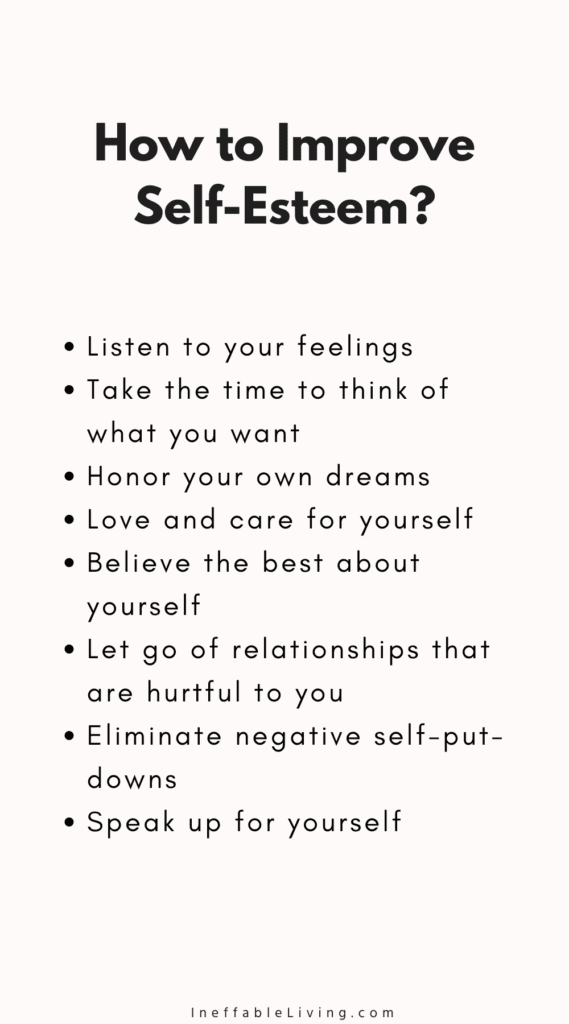
Conclusion
Fear of abandonment is cumulative, causing us to feel vulnerable to rejection and loss later on.
It’s important to use your logical mind to come up with empowering information about your loss and integrate that information with what is going on inside.
It’s important to acknowledge that idealizing your former partner is an idea that’s driven by your biological instincts and not based on your wisdom.
By using your adult cognitive mind to tame your biological instincts, you come to accept your emotions for what they are—feelings, not facts.
FREE Breakup Worksheets PDF
Books On Abandonment Issues
1. Love Me, Don’t Leave Me: Overcoming Fear of Abandonment and Building Lasting, Loving Relationships by Michelle Skeen
2. The Abandonment Recovery Workbook: Guidance Through the Five Stages of Healing from Abandonment, Heartbreak, and Loss by Susan Anderson
3. Changing Course: Healing from Loss, Abandonment, and Fear by Claudia Black
References
- Portions of this article were adapted from the book The Abandonment Recovery Workbook: Guidance Through the Five Stages of Healing from Abandonment, Heartbreak, and Loss, © 2016 by Susan Anderson. All rights reserved.
- Quality of Social Relationships and the Development of Depression in Parentally-Bereaved Youth – PMC (nih.gov)
- Abandonment issues: Signs, symptoms, treatment, and more (medicalnewstoday.com)
- Fear of Abandonment Issues and Therapy Treatment (goodtherapy.org)
- Abandonment Issues: Signs, Causes & How to Overcome (choosingtherapy.com)
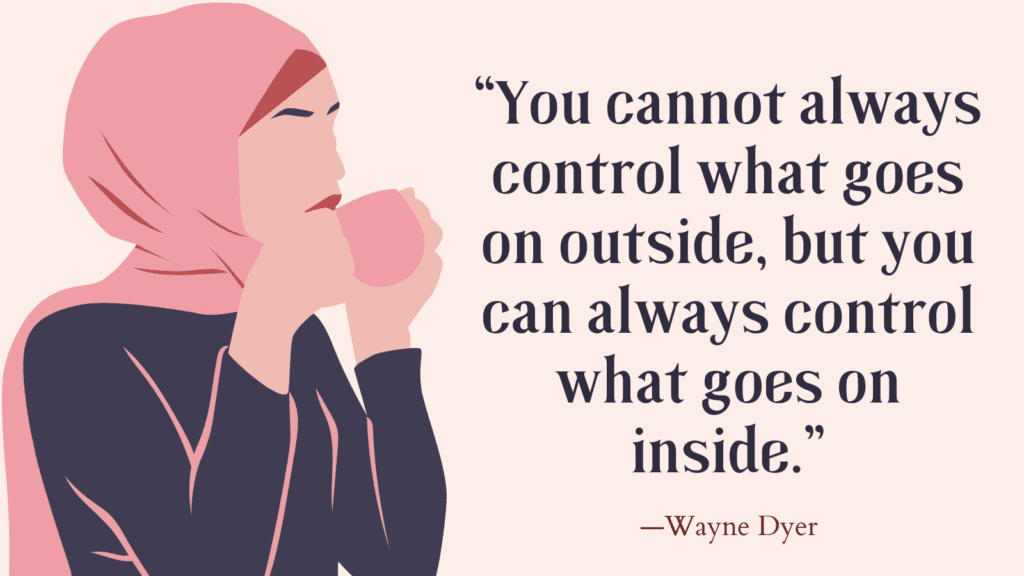

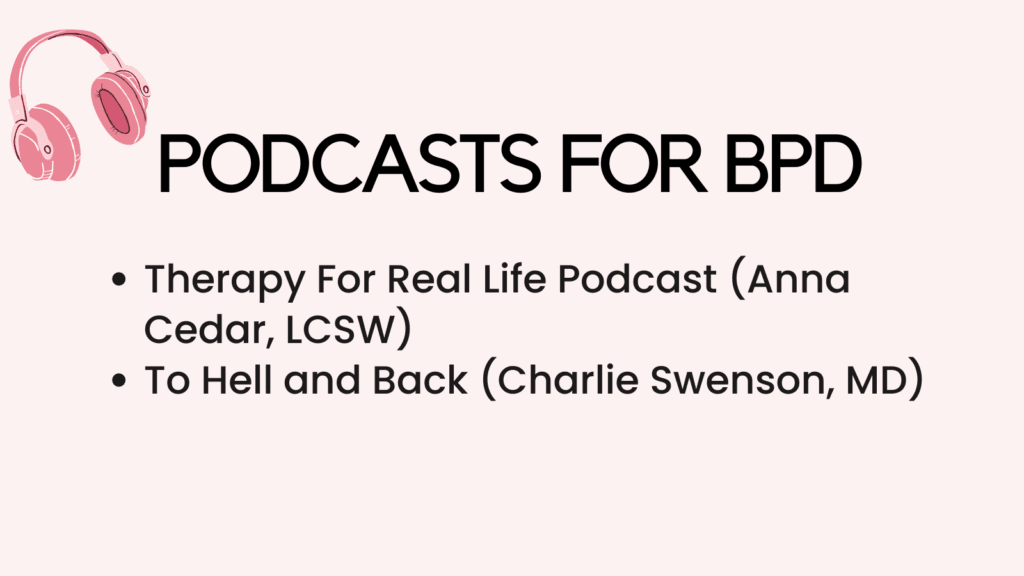
![BPD Support Groups [Online & In-Person]](https://ineffableliving.com/wp-content/uploads/2022/09/Borderline-Personality-Disorder-Support-Group-1024x576.png)